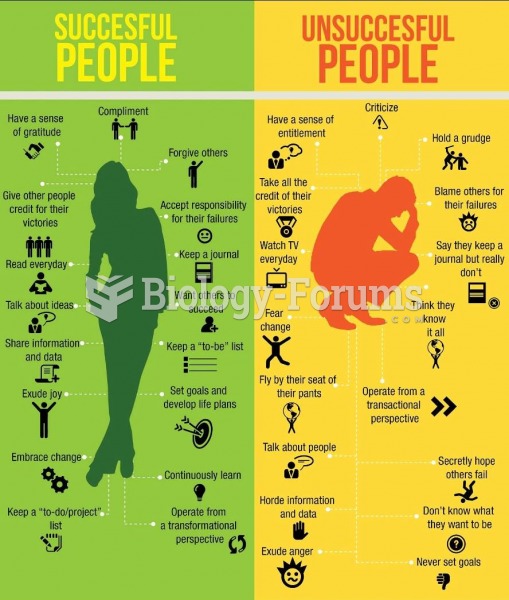|
|
|
Vaccines prevent between 2.5 and 4 million deaths every year.
On average, someone in the United States has a stroke about every 40 seconds. This is about 795,000 people per year.
After a vasectomy, it takes about 12 ejaculations to clear out sperm that were already beyond the blocked area.
There used to be a metric calendar, as well as metric clocks. The metric calendar, or "French Republican Calendar" divided the year into 12 months, but each month was divided into three 10-day weeks. Each day had 10 decimal hours. Each hour had 100 decimal minutes. Due to lack of popularity, the metric clocks and calendars were ended in 1795, three years after they had been first marketed.
There are more bacteria in your mouth than there are people in the world.







